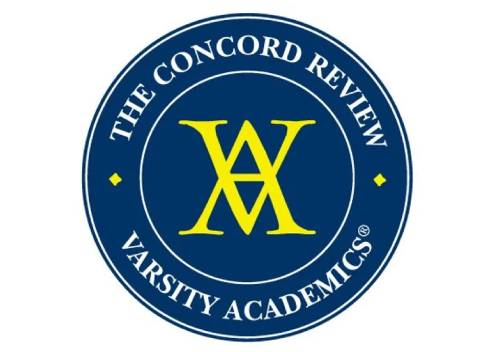2026 Regeneron ISEF Preparation Guide: Key Dates, Categories, and Winning Strategies to Secure Your Spot at Top Universities
Recently, the prestigious global science and engineering competition, Regeneron ISEF (International Science and Engineering Fair), officially announced the dates and venue for the 2026 Finals. This gathering of youth innovation from around the world will take place from May 9 to May 15, 2026, at the Phoenix Convention Center in Arizona, USA.
With the competition dates and location confirmed, young tech enthusiasts from across the globe are gearing up for intense preparations. If you aim to participate in ISEF and join the ranks of global scientific leaders, showcasing your cutting-edge research and enhancing your academic profile, this comprehensive ISEF guide is for you!
What is ISEF?
Regeneron ISEF, formally known as the International Science and Engineering Fair, is one of the most prestigious competitions for young researchers, sponsored by Regeneron Pharmaceuticals. It is often referred to as the “World Cup” of youth innovation, attracting talented high school students from around the world to present projects across 22 categories, including physics, chemistry, computer science, engineering, social sciences, biology, and more.
In 2025, ISEF saw over 60 countries and regions participate, with 1,657 contestants showcasing 1,328 projects. While the number of projects was slightly lower than in 2024, the competition remained fierce. The most represented fields were Translational Medicine, Biomedical Sciences, Biomedical Engineering, Environmental and Earth Sciences, and Computational Biology, all drawing increasing attention and intense competition.
Why Participate in ISEF?
ISEF, considered one of the highest-caliber STEM competitions, is often recommended by universities like MIT. Participation in ISEF offers students several advantages:
- Academic Excellence:
With the growing competitiveness of college admissions, particularly among international students, demonstrating research skills is highly valued. ISEF is an excellent choice to showcase academic prowess, especially for Chinese students applying to top U.S. schools. - Research Potential:
For Ivy League schools and other top U.S. institutions, a meaningful research experience is one of the key factors in evaluating applicants. Having research achievements like those seen at ISEF reflects a student’s deep passion and ability to delve into a specific field, proving their academic potential. - Resume Enhancement:
ISEF provides an impressive addition to a college application, especially in the "Extracurricular Activities" section. Being a finalist or award winner can help students stand out in highly competitive admissions processes.
ISEF Eligibility & Pathways
ISEF does not allow direct entry; students must first qualify through local affiliate competitions. Only those who perform well in regional events can secure a spot at the global finals.
- U.S. High School Students:
Students in the U.S. must first participate in their state’s affiliated competition, advancing from regional to state and then national levels before qualifying for the ISEF finals. The level of competition varies by state. - Chinese Students:
The "Talent Program" is the most common route for Chinese students, with a one-year training period. The “Youth Science and Innovation Competition,” recognized by the Chinese Ministry of Education, is another ISEF-affiliated event, offering a one-time opportunity for students in high school.
ISEF Subject Categories Overview
ISEF features a broad range of 22 categories. Our “ISEF Subject Series” lectures are incredibly popular, providing a deep dive into various disciplines. Understanding how to select a project topic is key to standing out at ISEF, and we share winning strategies, examples of successful projects, and useful tips for preparation.
ISEF Alumni Achievements & College Admissions
Many students start their research journeys as early as 9th grade, and since 2016, we’ve helped over 70 students qualify for the global ISEF finals. Many of these students have received offers from top U.S. universities such as MIT, Harvard, Penn, and Stanford.
Here are two notable examples:
- MIT/Stanford - Student L:
L was accepted by both MIT and Stanford, thanks to two groundbreaking projects in the field of computer science and bioinformatics. His journey began with a focus on deep reinforcement learning and drug discovery, with key achievements at the ISEF regional level. His participation in ISEF greatly strengthened his college application. - University of Pennsylvania - Student Z:
Z’s research in self-sensing pneumatic robots earned him recognition at ISEF’s global finals, as well as accolades from the Science Talent Search (STS). His ability to excel in multiple competitions demonstrated his versatility and passion for research, catching the attention of top universities.
Strategic Advice for Preparing for ISEF
Given the competitive nature of ISEF, a successful preparation plan requires weekly dedication. Balancing schoolwork with research projects is crucial, as any missed preparation time could affect the quality of the final product.
As the 2026 ISEF season approaches, now is the time to start planning and preparing your project. If you’re aiming for ISEF or considering long-term academic planning, get in touch with a professional mentor to guide you through the process.
For more details on the ISEF timeline, affiliated competitions, and personalized coaching for your ISEF journey, feel free to reach out to us!





